Suddenly I'm uneasy about Windows 8's release date

While I was sleeping -- and perhaps you, too -- Microsoft announced that one more public Windows 8 test build will come before the code is gold. Right now, Windows 8 Release Preview will be available the first week of June. What? Microsoft no longer calls these things release candidates? Timing is tight, unless Windows & Windows Live president Steven Sinofsky and his team exude absolute confidence they can finalize code in time for autumn launch.
It's a narrow path from early June release candidate to August release to manufacturing to October launch, unless there are no major changes from the Consumer Preview released in February or last-minute show-stopping bugs. You can read this as sign that Windows 8 is rock-solid ready and that Sinofsky and team are absolutely certain about the operating system's readiness or that they need to stretch out the time as long as possible. The Consumer Preview came at the last possible milestone for Microsoft to ship this year, and the next one follows similar tight track.
Use your Windows 8 tablet as a mobile set-top box [video]

It's amazing what you can do with Windows 8. In this video demo I show how you can convert your Windows 8 tablet into a mobile multimedia set-top box for your TV. You could also turn your tablet into a game console, if you want.
I use an Acer W500 tablet -- running Windows 8 Consumer Preview, of course -- plugged into the TV, without additional power (that's good for about four hours battery life). In this configuration, the Windows tablet is like a mobile set-top box.
Microsoft enterprise licensing changes favor Windows RT, put Android and iOS in their place

If you can't beat them, manage them. It's a strategy that has worked well for Microsoft in the past, and it is emerging as a key element in announcements last week about how Microsoft will license Windows 8 in all its variations, including the x86 consumer, Professional and Enterprise editions, the embedded Windows RT and the cloud-based Windows Intune.
While Microsoft's primary goal is to stop Apple's growth in the enterprise, which it will do by tilting licensing policies in favor of Windows tablets, the company has a Plan B that will help monetize Apple and Android devices in the enterprise through management.
Microsoft Q3 2012 by the numbers: $17B revenue, 60 cents EPS

Late this afternoon, after the closing bell, Microsoft revealed results for one of its most uncertain quarters in years. That's because Gartner and IDC report tepid PC shipments and Microsoft prepares to launch a horde of new products later this year, including new versions of Office, Windows and Windows Server, among others. Sometimes sales sag in the quarter or two before new product releases -- and for 2012 there are many core ones coming.
"With the upcoming release of new Windows 8 PCs and tablets, the next version of Office, and a wide array of products and services for the enterprise and consumers, we will be delivering exceptional value to all our customers in the year ahead", Microsoft CEO Steve Ballmer says.
Is Microsoft's carrot enough for businesses to take the Windows 8 Enterprise stick?
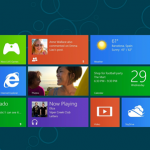
Microsoft pours out the Windows 8 news this week, ahead of fiscal 2012 third quarter earnings results. Yesterday, the company revealed the new SKUs and Windows Server 2012 naming. Today comes more information on the most distinct edition -- Windows 8 Enterprise. I debated all day what to write about the software, feeling that there's more marketing speak than substantive information in the blog post announcement. The devil is in the details as they say, and never more than Windows Enterprise and so-called Software Assurance benefits coming with it.
That's because Enterprise is a slippery slope for large businesses to climb. Most enterprises acquire Windows on new PCs -- OEMs account for 75 percent of sales -- but from there Microsoft licensing rules get sticky. Businesses can reimage PCs based on whatever license rights they have. Those wanting to deploy Windows Enterprise must take on something else: Software Assurance is required and adds considerable upfront cost: 29 percent of the full price for two or three years, paid annually. The real benefits -- that carrot -- are all about licensing, for those businesses willing to be beat by the stick (Software Assurance).
I applaud Windows 8 versions because I remember pure XP
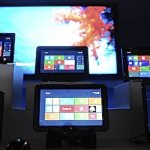
I certainly hadn't planned on responding to a story written in 2003 today. But, hey, the Internet's memory is better than an elephant's -- and I've been called to task for "forgetting". Most certainly I did not forget. Circumstances changed.
Yesterday, while waiting for my 90 year-old father-in-law at the optometrist, I got out my smartphone and started scanning Tumblr posts. One led to a Time magazine story about the "Hug Me Coke Machine", which I Tumblred hours late. While at Time's site, I spied something else: "Windows 8 Versions: The News Is Mostly Good" by Harry McCracken. He referred back to my old CNET story "Windows faces new competition: Itself", about fragmenting versions, and contrasted it against my more recent musings for BetaNews. Thanks for remembering, Harry.
Meet Windows Server 2012

It's codename Windows 8 Server no more. Keeping with previous year nomenclature, Microsoft today officially announced Windows Server 2012, during its Management Summit in Las Vegas. Corporate vice president Brad Anderson also confirmed the software would ship later this year, another indicator Windows 8 is on track for autumn launch.
Microsoft tends to be very specific with products that have a year in the name. Windows Server 2008 got its name in Mid-May 2007. The company has some rules about nomenclature, and that one foreshadowed late-year release at best (the software launched in February 2008). The deliberate 2012 nomenclature signals Microsoft's confidence that the new Windows Server will ship this year and likely sooner than later.
Three Windows 8 editions is just right
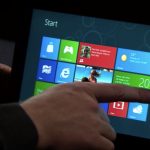
Common sense has returned to Windows product marketing. After rumors of nine Windows 8 editions sent me into near cardiac arrest last month, Microsoft instead has gone back to basics. The new operating system will come in just two editions for x86 processors -- Windows 8 and 8 Pro. If you're running Windows XP today, as most people still are, these two will be familiar to you, right down to the major differences between them, being similar to Home and Professional Editions. The third, Windows RT, is for devices running ARM processors, and, as Microsoft previously disclosed, will only be available on new hardware. You can install Windows 8 or Pro on your PC, but RT comes preloaded.
Hot damn! There's seriously fresh thinking going on over at the Windows & Windows Live division. Someone pinch me and pray tell I'm not dreaming. The only thing better than this would be lower pricing, which, admittedly, I'm not hopeful for. But one can dream within the dream!
As Metro debate smolders, will it burst into flames and consume Windows 8?

On Friday, colleague Ed Oswald opined "Metro apps on Windows 7 is a bad, bad idea". I agree. Ed responded to Adrian Kingsley-Hughes' ridiculous commentary: "Bring Metro apps to Windows 7 to encourage developer growth". He usually writes good stuff, but this one is a stinker. Metro doesn't belong on Microsoft's current OS, and BetaNews commenters raise legitimate questions about how much it belongs on Windows 8.
Metro is a hotly-debated topic here, and on other sites where Windows enthusiasts gather. There's general consensus that Metro works for touch, albeit with too much scrolling to the left once there are many apps, but controversy about its functionality with mouse and keyboard and position as primary user interface is fierce. Some readers here also question whether or not touch should be the future Microsoft bets on. Windows 8's success depends on Metro -- businesses, consumers and developers embracing it. If they don't, the OS could be the biggest flop since Windows ME or Vista. Take your pick which!
Metro apps on Windows 7 is a bad, bad idea
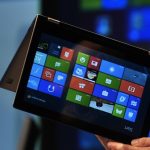
As we move closer to the launch of Windows 8 -- and the sea change that the Metro user interface brings to the platform -- there's an ever increasing drumbeat of both skepticism, concern, and apprehension depending on who you talk to.
End users are skeptical of Metro because they do not see its value. The interface completely changes how we interact with Windows, and in some cases will confuse us. I point you to this video of tech pundit Chris Pirillo's father attempting to use Windows 8 for the first time without instruction as an example. Microsoft may have unintentionally added an extra layer of complexity in an effort to simplify the OS.
Is it worth having the Start Menu alongside the Windows 8 Start Screen? [video]
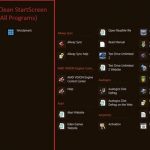
The simple answer here is yes.
There has been much debate about the merits of the traditional Start Menu versus Metro's Start Screen since Windows 8 Developer Preview released last year. Microsoft did away with the Start Button in Windows 8, replacing it and the supporting menu with the Start Screen, which is primed for touch. Supporters, and that includes Microsoft, say it's better. But the argument that the "Start Screen can do everything the Start Menu can is the biggest BS to date.
Want Windows 8 Metro without the upgrade? Skin it!
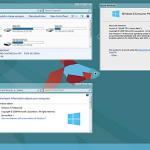
Fancy the idea of using the Windows 8 UI but don’t feel like going as far as installing the consumer preview version of the OS? Look no further than a transformation pack to give your operating system a makeover and a completely new look. If you’re working with Windows 7 you can use Windows 8 UX Pack 4.0, while Windows 8 Transformation Pack 4.0 can be used in everything from Windows XP and up. Both apps bring the look and feel of Windows 8 to your desktop with no need for complex tweaking.
The two skinning app’s version numbers have been brought in line with each other, and there are a number of changes to investigate. Windows 8 UX Pack 4.0 now better mimics the look of Windows 8 thanks to the switch to using the Segoe UI font and inclusion of all of the desktop wallpapers from the Windows 8 Consumer Preview.
Don't cry for me, Steve Ballmer

But I'll shed a tear for you and remember the good times we had together.
That's because IDC asserts, despite exciting Windows 8's coming launch, that the PC era will be over by 2016. Gartner uses a different metric to arrive at 2014. But whatever the measure, the Windows era is over, too, as (gulp) Android becomes the most widely shipped operating system on the planet. I guess you were right to obsess about Google after all. Cripes! As long ago as 2003, wasn't it? Who could have imagined that it would really come to this? You weren't being paranoid at all.
Consolidate your life with Windows 8 [video]

Microsoft’s image of the future makes Windows 8, supported by cloud services, the hub integrating all devices and personalization in the user’s life. The key is the new log-in method, which requires Windows Live ID. Metro application, user settings, Start Screen layout, desktop icons and user files follow the user wherever he or she signs in with Windows Live ID. Microsoft plans one consistent experience across devices. Apple and Google use similar identity mechanisms for iOS and Android devices and syncing content among them.
The problem, and perhaps it's one of those beta things, the process doesn't work so well. Then there's this: everything has to be stored within the Microsoft cloud -- that's Windows Live and SkyDrive, with the optional integration of DropBox. This is all nice if you don’t mind storing you information on someone else's server, with an unknown location and, even worse, risk some unknown people snooping inside your stuff. Do you really trust your files in someone else's hands? Even Microsoft's? There is another way to achieve this lifestyle.
Windows tablets and the enterprise, what's the problem?
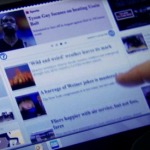
I have repeatedly read how Windows 7 is not well-suited to touch, which is the reason some people are waiting for Windows 8 before buying a tablet. Microsoft's solution is Metro -- the next generation touch interface for Windows. Yes, Metro is touch friendly, but is it really the answer to the enterprise when it comes to Windows tablets?
Windows 7 is not any less suited to touch and a tablet PC than Windows 8. Sure Windows 8 does offer a few perks that make touch better as far as the operating system is concerned, such a better on-screen keyboard. But as far as applications a business may want to design themselves specific to tablets, I don't see any advantage Windows 8 has over Windows 7.
Recent Headlines
© 1998-2024 BetaNews, Inc. All Rights Reserved. Privacy Policy - Cookie Policy.